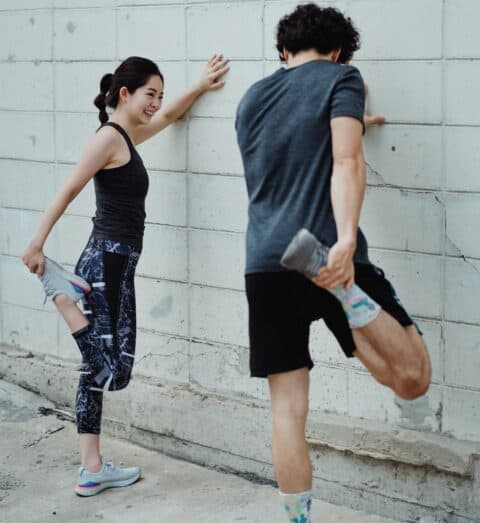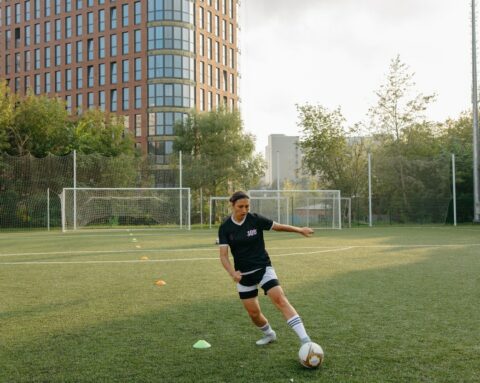Shoulder tendinopathy is an injury to the shoulder tendons that can cause both pain and swelling whilst making a full range of movement difficult. Tendinopathy can be defined as either the inflammation of the tendon or tiny tears in the tendon without large amounts of inflammation which is seen more commonly.
Causes
Shoulder tendinopathy is most commonly caused by repeated trauma to your rotator cuff tendons. It is generally a result of overuse of muscles and tendons which over time develop a large strain on the muscles and tendons in use. Activities which require a frequent amount of throwing or reaching actions above your head are extremely common causes of shoulder tendinopathy. Rotator Cuff Impingement occurs where your rotator cuff tendon impacts against the acromion bone, which does not usually happen during the normal functioning of the shoulder. As the impingement continually occurs your rotator cuff tendon will become swollen and inflamed due to the added friction!
Symptoms⠀
If you think you might be suffering from supraspinatus tendinopathy some of the following symptoms can help you decide whether to visit your local Myotherapist:
– If you experience your shoulder clicking when your arm is above shoulder height ⠀
-If you experience clicking/pain when your hand is moved behind your back or head⠀
-If you feel pain whilst lying on the shoulder in question.⠀
-If you experience pain in your shoulder or upper arm which may go as far down as your elbow. ⠀⠀
If you have experienced any of these symptoms it is very important to go see an expert and begin your recovery process as soon as possible.
Diagnosis
When you visit your doctor to diagnose shoulder tendinopathy you will undergo a physical exam where your muscle strength, range of motion and shoulder tenderness will be measured. You may also need to have images taken of your shoulder through the mediums of MRI, X-rays, ultrasound or CT scans. Luckily, most cases of shoulder tendinopathy are reversible with the correct rehabilitation process. If however, you do not treat the injury it can deteriorate into calcific tendonitis which can require surgery. It is vital to go to a myotherapist who is highly qualified in shoulder assessment to properly correct your biomechanics moving forward.
Recovery
As shoulder tendinopathy is a soft tissue injury the first step is to follow early injury protocol which means rest, ice and support. You will aim to prevent undertaking any actions that will cause pain meaning that you should also avoid doing the activity that caused the initial pain. You may also need to wear a sling or have your shoulder taped during this stage of recovery to provide some relief from pain. Your myotherapist will advise you on some posture techniques you can use in your day to day life or whilst sleeping to avoid discomfort. They will also be able to assist you with massages, acupuncture and joint mobilisation to remove some of the pain you may be experiencing.
It can take up to 6 weeks or more for shoulder tendinopathy to create new scar tissue which gives us a window of opportunity to mould the tissue in such a way that it won’t tear in the future. Your myotherapist will be key in this process by providing you with muscle stretches, joint mobilisations and active assisted exercises which can not only improve your range motion but also make the joint far more functional in the future.
One of the most important stages is restoring the control of your scapula. your scapula is the base of your arm and shoulder movements and plays a crucial role as the main stable piece that attaches your arm to your chest. Your neck and spine may also be redirecting pain to your shoulder which can cause certain muscles to weaken. Your myotherapist will provide you with some treatment for your neck and upper back which will improve your movement and prevent the injury from returning. It is also crucial for your rotator cuffs strength and functionality to be restored in the later stages of shoulder tendinopathy recovery. As we discussed earlier, your rotator cuff is extremely important in assisting proper shoulder movement. The rehabilitation process for your rotator cuff will involve increasing both the load and positioning of your shoulder to accommodate the injured tendons.
Return To Play
If you are someone that is experiencing shoulder tendinitis then you should take great care when attempting to restore power, speed and agility. The injury can often occur from an activity or sport that involves high-speed moments and if this is the case re-injury from returning to play too quickly is very common. Your myotherapist is crucial in guiding you through exercises during rehabilitation that will address all the important components required to return to play. Your return to full health will be personalised for sport-specific training that repairs your shoulder in the most effective way possible.
As always, your myotherapist at Studio Musculoskeletal will provide you with goals, schedules and time frames that will provide you with the perfect plan for returning to action! With the right care and recovery plan, you will often see a full return of speed, agility, movement and function with a lowered chance of injury reoccurrence in the future.






